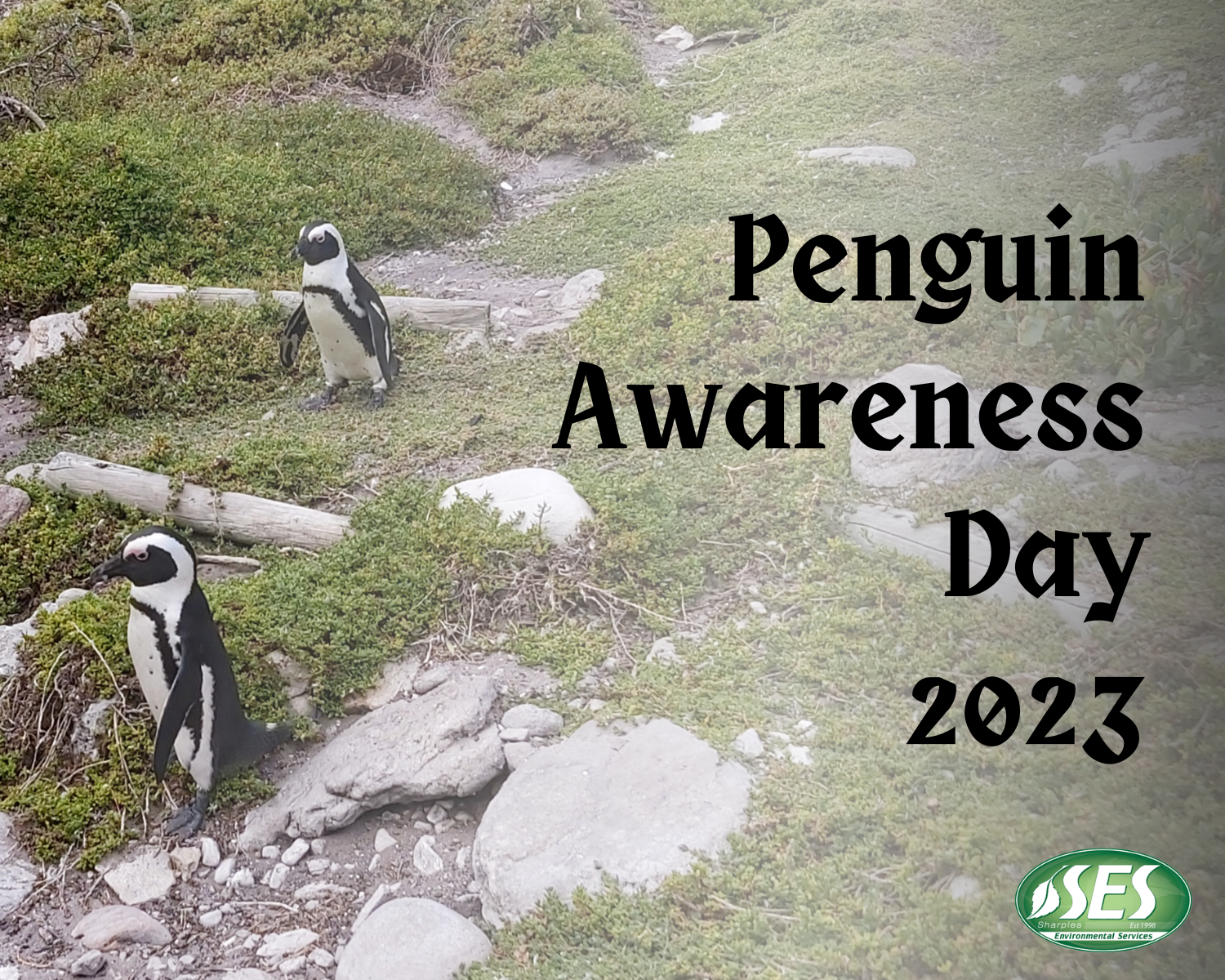Thanks to the animated movie Happy Feet 2, we all know how hopelessly romantic Gentoo penguins (Pygoscelis papua) are when trying to impress a new mate. In case you have not seen the movie, as part of their courting ritual, the male Gentoo penguin (Pygoscelis papua) will gift the smoothest pebble he can find to the female of his choosing. If she accepts the offering, the pair begins building their nest (in the form of a pebble mound) in preparation for egg laying. If you are interested, see the video below of their ritual.
Beyond that which has been presented to us in pop culture, most of us are fairly unfamiliar with these little flightless birds. Here are five interesting tidbits about penguins you probably did not know:
- There are 18 species of penguins
These include species such as the African penguin (Spheniscus demersus), two colonies established along the western coast have been established. These are the Boulders Beach colony in Simon’s Town and Stony Point Nature Reserve in Betty’s Bay. Other species include the Little blue penguins (Eudyptula minor), the smallest penguins in the world specifically found in New Zealand, and the infamous Emperor penguins (Aptenodytes forsteri) residing in Antarctica in colonies with 5 000 individuals or more. For more information on other penguin species, feel free to visit IUCN’s website.
- Penguins originated in Australia not in Antarctica.
According to genomic research, it has been concluded that penguins actually originated from the coastal regions of New Zealand and Australia about 22 million years ago (1). Additionally, in terms of species composition, New Zealand is considered the most diverse, with 9 of the species breeding along its coastline and within its territories (4).
- Penguins only live in the Southern Hemisphere.
The reason for this is because of the absence of apex land predators posing a threat to their breeding habitats. In the Northern Hemisphere the shores are easily accessed by foxes, wolves and polar bears. This does not come to reason that no threats exist in the southern hemisphere (as they are in fact vulnerable to skuas and giant petrels) (3).
- Penguins are not as monogamous as you may believe.
The respective sexes may have several partners before choosing a mate It is true, however they are socially monogamous creatures for the entirety of a breeding season once they choose a mate to raise the chick with. Both males and females may have several partners before choosing a mate. If a male abandons the nest, the female may choose a different male (already coupled with another female), however once his original female returns a stand-off occurs between the two females.
- The penguin population around the world is declining.
So much so that, according to Penguins-World.com (2), five of the 18 recognized species have been classified as Vulnerable in terms of the IUCN Red list and five more have been classified as Endangered Species. According to Birdlife International’s reporting on the population status of African penguins specifically the decline in the population have been coupled with activities rooted in commercial fisheries which lead to shifts in the prey population. Other threats to the penguin population are habitat loss, pollution and fishing.
In honour of the Penguin Awareness Day, the SES Team hopped over to the Southern African Foundation For The Conservation Of Coastal Birds (SANCCOB) Table View to show our appreciation and support to the staff working hard and meticulously to rehabilitate the animals rescued for release back into the wild. The facility is currently facing an outbreak of Avian influenza. Thus far 100 individuals have been cured, with over 400 birds still requiring care. To assist the facility in their time of need, SES has made a monetary donation to the organization for the purchase of supplies.

For more information on the work done by SANCCOB you can visit https://sanccob.co.za/. Or, if you would like to show your appreciation or help the organization by any means, please contact reception@sanccob.co.za or phone them on 021 557 6155.
Why not pop a visit to your nearest penguin colony this weekend? Have you had any experiences with penguins? What is your favourite fact about penguins? Let’s have a discussion on Facebook or LinkedIn.
References
(1) Website: https://www.stuff.co.nz/science/122504840/penguins-originated-in-new-zealand-and-australia–not-the-antarctic-study-finds#:~:text=They%20used%20genomes%20to%20look,ago%2C%20and%20not%20in%20Antarctica.&text=Emperor%20penguins%20on%20the%20frozen%20Ross%20Sea. Penguins originated in New Zealand and Australia – not the Antarctic, study finds. As accessed on 6 January 2023.
(2) Website: https://www.penguins-world.com/penguins-endangered/ Penguins Endangered. As accessed on 6 January 2023.
(3) Website: Aurora Expeditions. https://www.auroraexpeditions.com.au/blog/why-are-there-no-penguins-in-the-arctic/#:~:text=This%20works%20because%20they%20are,polar%20bears%20%E2%80%93%20maybe%20even%20humans!. Why are there no penguins in the Arctic?. As accessed on 6 January 2023.
(4) Website: https://teara.govt.nz/en/penguins/page-1 Te Ara. Story” Penguins. As accessed on 9 January 2023.
(5) Website: https://www.livescience.com/are-penguins-really-monogamous Are penguins really monogamous? As accessed on 6 January 2023.













